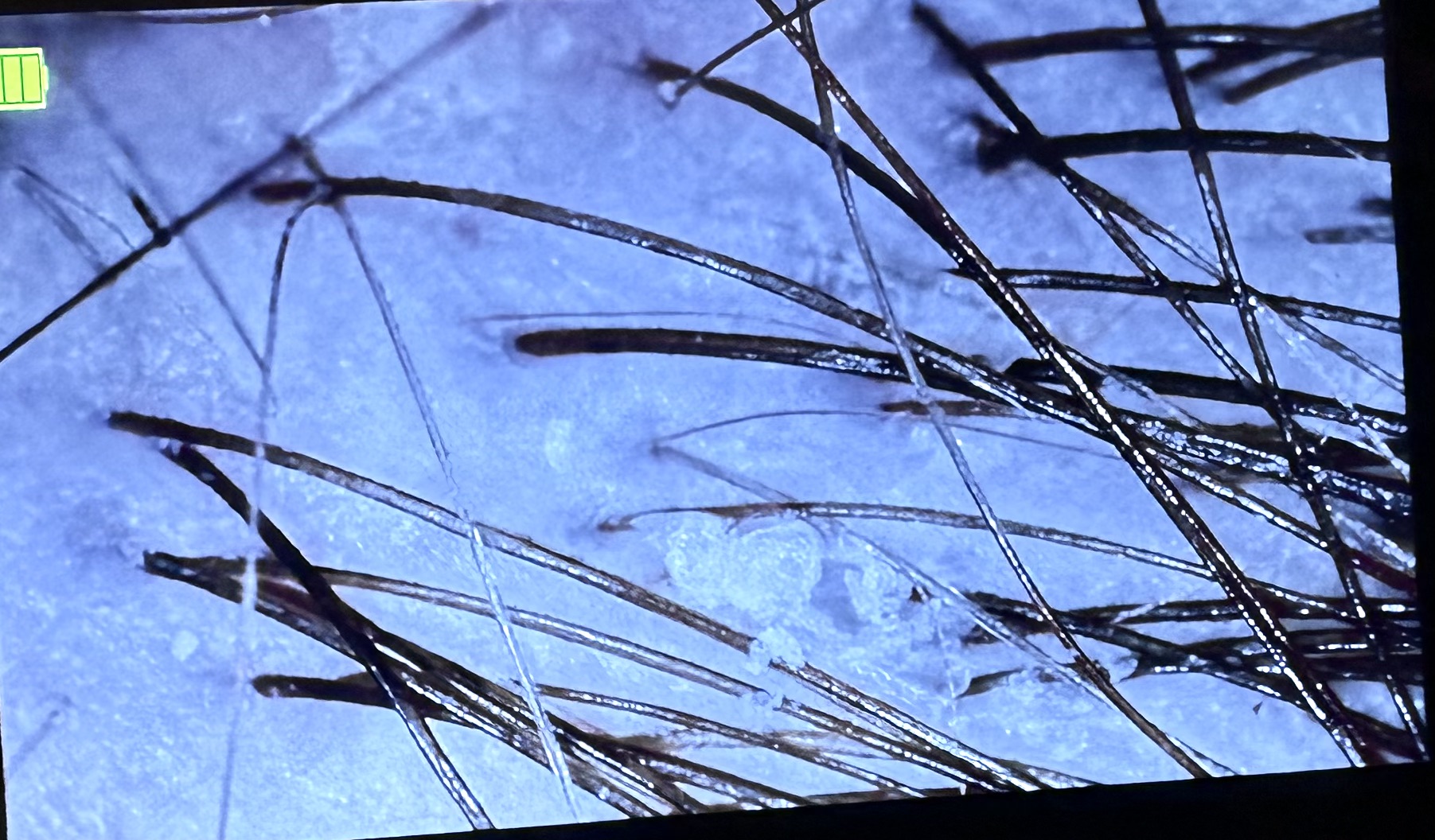The Stress-Hair Connection
Stress is an inevitable part of modern life, but its impact on our hair and scalp health is often underestimated. Understanding how stress affects hair growth can help you take proactive steps to protect your scalp wellness during challenging times.
How Stress Impacts Hair Growth
When we experience stress, our bodies undergo several physiological changes that can directly affect hair growth:
Hormonal Disruption
Chronic stress elevates cortisol levels, which can disrupt the normal hair growth cycle. High cortisol can:
- Shorten the anagen (growth) phase of hair follicles
- Increase the production of dihydrotestosterone (DHT), a hormone linked to hair loss
- Interfere with nutrient absorption, depriving hair follicles of essential vitamins and minerals
Reduced Blood Circulation
Stress causes blood vessels to constrict, reducing circulation to the scalp. This decreased blood flow means fewer nutrients and oxygen reach the hair follicles, potentially leading to:
- Weakened hair shafts
- Slower hair growth
- Increased hair breakage
Types of Stress-Related Hair Loss
Stress can manifest in different types of hair loss patterns:
Telogen Effluvium
This is the most common stress-related hair loss, where a significant number of hair follicles enter the resting phase prematurely. Symptoms include:
- Diffuse thinning across the entire scalp
- Increased hair shedding during washing or brushing
- Hair loss typically occurs 2-3 months after the stressful event
Alopecia Areata
An autoimmune condition often triggered by stress, causing:
- Circular patches of hair loss
- Sudden onset of symptoms
- Potential for complete hair regrowth with proper treatment
Trichotillomania
A stress-induced compulsive behavior involving:
- Urge to pull out hair from the scalp, eyebrows, or other areas
- Often occurs during periods of anxiety or tension
- Can lead to noticeable hair loss patterns
Signs Your Stress is Affecting Your Hair
Watch for these warning signs that stress may be impacting your scalp health:
- Increased hair shedding (more than 100 hairs per day)
- Thinning hair, especially at the crown or temples
- Changes in hair texture or quality
- Scalp sensitivity or irritation
- Slower hair growth than usual
- Brittle or easily breakable hair
Protecting Your Scalp During Stressful Times
At Relaxare Scalp Spa, we recommend a multi-faceted approach to protecting your hair during stressful periods:
Stress Management Techniques
- Meditation and Mindfulness: Regular practice can help lower cortisol levels
- Regular Exercise: Physical activity improves circulation and reduces stress hormones
- Adequate Sleep: 7-9 hours of quality sleep supports healthy hair growth
- Deep Breathing Exercises: Simple techniques to activate the relaxation response
Scalp-Specific Care
- Gentle Scalp Massage: Improves circulation and promotes relaxation
- Stress-Relief Treatments: Professional scalp treatments designed to reduce tension
- Aromatherapy: Essential oils like lavender and rosemary can reduce stress and support scalp health
The Relaxare Approach to Stress-Related Hair Issues
Our comprehensive stress-relief treatments include:
Therapeutic Scalp Massage
Our specialized massage techniques help:
- Increase blood circulation to the scalp
- Reduce muscle tension in the head, neck, and shoulders
- Promote the release of endorphins, natural stress-fighting hormones
LED Light Therapy
Our LED treatments can help counteract stress-related hair loss by:
- Stimulating cellular energy production in hair follicles
- Improving scalp circulation
- Reducing inflammation caused by stress
Aromatherapy Integration
We incorporate stress-reducing essential oils that:
- Promote relaxation and reduce anxiety
- Support healthy scalp conditions
- Enhance the overall treatment experience
Nutritional Support for Stressed Hair
During stressful periods, your hair needs extra nutritional support:
- B-Complex Vitamins: Essential for hair growth and stress management
- Vitamin D: Supports hair follicle health and immune function
- Iron: Prevents hair loss related to deficiency
- Omega-3 Fatty Acids: Reduce inflammation and support scalp health
- Adaptogenic Herbs: Help the body manage stress more effectively
Recovery and Prevention
The good news is that stress-related hair loss is often reversible. With proper care and stress management:
- Hair typically begins to regrow within 3-6 months of stress reduction
- Professional treatments can accelerate the recovery process
- Preventive care can minimize future stress-related hair issues
When to Seek Professional Help
Consider professional treatment if you experience:
- Sudden or severe hair loss
- Hair loss that doesn't improve after stress reduction
- Scalp irritation or unusual symptoms
- Emotional distress related to hair changes
At Relaxare Scalp Spa, we understand the complex relationship between stress and hair health. Our personalized treatments are designed to address both the physical and emotional aspects of stress-related hair concerns, helping you restore not just your hair's health, but your overall sense of well-being.
